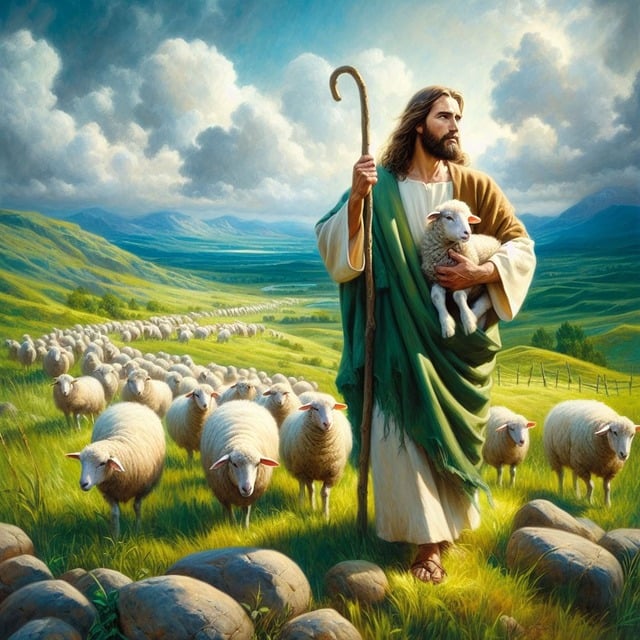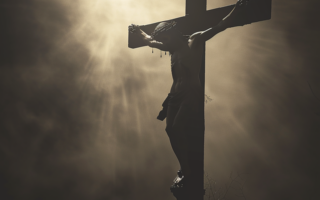Christianity in the Catholic Church is a religion based on the teachings of Jesus Christ and the belief in the Holy Trinity. It is the largest Christian denomination in the world, with over a billion followers. The Catholic Church believes in the authority of the Pope, the sacraments, and the importance of tradition and scripture in guiding the faith and practices of its members.
Table of Contents
History of Christianity in the Catholic Church
Christianity is a religion that has been around for centuries, with a rich history and deep roots in the Catholic Church. The term “Christianity” refers to the beliefs and practices of followers of Jesus Christ, who is considered the Son of God in the Christian faith. In the Catholic Church, Christianity is practiced through a set of beliefs, rituals, and traditions that have been passed down through generations.
The history of Christianity in the Catholic Church dates back to the time of Jesus Christ himself. According to Christian belief, Jesus was born in Bethlehem around 4 BC and began his ministry around the age of 30. He preached about love, forgiveness, and salvation, and performed miracles to demonstrate his divine power. Jesus’ teachings attracted a following of disciples, who spread his message after his death and resurrection.
After Jesus’ crucifixion and resurrection, his disciples continued to spread his message throughout the Roman Empire. The early Christian community faced persecution from the Roman authorities, but their faith continued to grow. In the year 313 AD, the Roman Emperor Constantine issued the Edict of Milan, which granted Christians the right to practice their religion freely. This marked a turning point for Christianity, as it became more widely accepted and began to spread throughout Europe.
Over the centuries, the Catholic Church emerged as the dominant Christian institution in Europe. The term “Catholic” comes from the Greek word katholikos, which means “universal.” The Catholic Church sees itself as the universal church, encompassing all believers in Jesus Christ. The Pope, who is considered the successor of St. Peter, serves as the spiritual leader of the Catholic Church and is believed to have authority over all Christians.
The Catholic Church has a rich tradition of rituals and sacraments that are central to the practice of Christianity. The seven sacraments – Baptism, Confirmation, Eucharist, Penance, Anointing of the Sick, Holy Orders, and Matrimony – are considered essential for the spiritual life of a Catholic. These sacraments are believed to convey God’s grace and strengthen the believer’s relationship with God.
In addition to sacraments, the Catholic Church also has a rich tradition of liturgical worship. Mass, the central act of Catholic worship, is celebrated daily in churches around the world. The Mass includes readings from the Bible, prayers, and the Eucharist, in which Catholics believe they receive the body and blood of Christ. The liturgical calendar, which follows the life of Jesus Christ, includes feast days, solemnities, and seasons such as Advent and Lent.
The Catholic Church also has a strong emphasis on social justice and charity. Catholics are called to follow the example of Jesus Christ by caring for the poor, the sick, and the marginalized. The Church operates numerous charitable organizations, hospitals, and schools around the world to serve those in need.
In conclusion, Christianity in the Catholic Church is a rich and diverse tradition that has evolved over centuries. From its origins in the teachings of Jesus Christ to its spread throughout the Roman Empire and beyond, Christianity has had a profound impact on the world. The Catholic Church continues to be a vibrant and dynamic institution that seeks to spread the message of Jesus Christ and serve those in need.
Core beliefs and teachings of Christianity in the Catholic Church
Christianity is a religion that has been around for centuries, with millions of followers around the world. In the Catholic Church, Christianity is practiced in a specific way that is guided by core beliefs and teachings. These beliefs and teachings are what shape the faith of Catholics and guide them in their daily lives.
One of the core beliefs of Christianity in the Catholic Church is the belief in the Holy Trinity. This belief states that there is one God who exists in three persons: the Father, the Son, and the Holy Spirit. This belief is central to the Catholic faith and is something that Catholics hold dear.
Another core belief of Christianity in the Catholic Church is the belief in the divinity of Jesus Christ. Catholics believe that Jesus is the Son of God who came to earth to save humanity from sin. This belief is at the heart of the Catholic faith and is what sets Christianity apart from other religions.
Catholics also believe in the importance of the sacraments. The sacraments are sacred rituals that Catholics believe bring them closer to God and help them grow in their faith. The sacraments include baptism, confirmation, Eucharist, reconciliation, anointing of the sick, holy orders, and matrimony. These sacraments are an essential part of the Catholic faith and are practiced regularly by Catholics around the world.
Another core belief of Christianity in the Catholic Church is the belief in the importance of prayer. Catholics believe that prayer is a way to communicate with God and seek guidance and strength. Prayer is an integral part of the Catholic faith and is something that Catholics engage in daily.
Catholics also believe in the importance of the Bible. The Bible is considered to be the word of God and is a guide for Catholics in their faith. Catholics believe that the Bible contains the teachings of Jesus Christ and is a source of inspiration and guidance for their lives.
One of the central teachings of Christianity in the Catholic Church is the belief in the importance of love and compassion. Catholics believe that they are called to love one another as God loves them and to show compassion to those in need. This teaching is at the heart of the Catholic faith and is something that Catholics strive to live out in their daily lives.
Overall, Christianity in the Catholic Church is a faith that is guided by core beliefs and teachings that shape the lives of Catholics around the world. These beliefs and teachings are what give Catholics strength and guidance in their faith journey and help them grow closer to God. Christianity in the Catholic Church is a rich and vibrant faith that continues to inspire and guide millions of people around the world.
Role of the Pope in Christianity in the Catholic Church

Christianity is a diverse religion with many denominations, each with its own beliefs and practices. In the Catholic Church, the Pope plays a central role in guiding and leading the faithful. But what exactly is the role of the Pope in Christianity in the Catholic Church?
The Pope, also known as the Bishop of Rome, is considered the spiritual leader of the Catholic Church. He is believed to be the successor of Saint Peter, who was appointed by Jesus as the head of the apostles. The Pope is seen as the Vicar of Christ on Earth, representing Jesus in his role as the head of the Church.
One of the primary roles of the Pope is to provide spiritual guidance and leadership to the Catholic faithful. He is responsible for interpreting and teaching the doctrines of the Church, as well as upholding its traditions and practices. The Pope is also considered the final authority on matters of faith and morals, and his teachings are considered infallible when speaking ex cathedra, or from the chair of Peter.
In addition to his role as a spiritual leader, the Pope also serves as the head of the Vatican City State, the smallest independent state in the world. The Pope is the absolute monarch of Vatican City, with full executive, legislative, and judicial authority. He is also the head of the Roman Curia, the administrative body of the Catholic Church, which assists him in governing the Church and carrying out its mission.
The Pope is also responsible for appointing bishops and cardinals, who assist him in leading the Church and carrying out its mission. Bishops are responsible for overseeing the spiritual and administrative affairs of their dioceses, while cardinals serve as advisors to the Pope and elect his successor upon his death.
The Pope also plays a key role in promoting unity and dialogue within the Catholic Church and with other Christian denominations and religions. He is often called upon to mediate disputes and promote understanding and cooperation among different faith communities. The Pope also serves as a symbol of unity for Catholics around the world, bringing together believers from diverse cultures and backgrounds under the umbrella of the universal Church.
Overall, the role of the Pope in Christianity in the Catholic Church is multifaceted and complex. He serves as a spiritual leader, a monarch, an administrator, and a diplomat, all while upholding the teachings and traditions of the Church. The Pope’s influence extends far beyond the walls of the Vatican, shaping the beliefs and practices of Catholics around the world and promoting unity and dialogue among all people of faith.
Sacraments and rituals in Christianity in the Catholic Church
Christianity is a diverse religion with many denominations, each with its own beliefs and practices. In the Catholic Church, sacraments and rituals play a central role in the faith of its followers. These sacraments are seen as outward signs of inward grace, through which believers receive God’s blessings and are strengthened in their faith.
One of the most important sacraments in the Catholic Church is the Eucharist, also known as Holy Communion. This sacrament is a reenactment of the Last Supper, where Jesus shared bread and wine with his disciples, saying, “This is my body, which is given for you. Do this in remembrance of me.” Catholics believe that during the Eucharist, the bread and wine become the actual body and blood of Christ, a belief known as transubstantiation.
Another important sacrament in the Catholic Church is Baptism. This sacrament is seen as the initiation into the Christian faith, where believers are cleansed of original sin and welcomed into the community of believers. Baptism is typically performed by a priest or deacon, who pours water over the head of the person being baptized, while saying, “I baptize you in the name of the Father, and of the Son, and of the Holy Spirit.”
Confirmation is another sacrament in the Catholic Church, where believers are sealed with the gift of the Holy Spirit. This sacrament is typically performed by a bishop, who anoints the forehead of the person being confirmed with chrism oil, while saying, “Be sealed with the gift of the Holy Spirit.” Confirmation is seen as a strengthening of one’s faith and a deepening of one’s commitment to the Christian life.
The sacrament of Reconciliation, also known as Confession, is a sacrament where believers confess their sins to a priest and receive absolution. Catholics believe that through this sacrament, they are reconciled with God and the Church, and are able to receive God’s forgiveness and grace. Confession is seen as a way to cleanse one’s soul and renew one’s relationship with God.
Marriage is another sacrament in the Catholic Church, where believers enter into a lifelong commitment with their spouse before God and the Church. Catholics believe that marriage is a sacred union between a man and a woman, and that it is a reflection of the love between Christ and his Church. The sacrament of Marriage is seen as a way for believers to grow in love and holiness together, and to raise children in the faith.
The sacrament of Anointing of the Sick is a sacrament where believers are anointed with oil and prayed over by a priest for healing and strength. This sacrament is typically performed for those who are seriously ill or facing a major surgery, and is seen as a way to bring comfort and peace to the sick and suffering. Anointing of the Sick is a reminder of God’s presence and love in times of illness and distress.
In conclusion, sacraments and rituals play a central role in the Catholic Church, helping believers to deepen their faith and grow closer to God. These sacraments are seen as outward signs of inward grace, through which believers receive God’s blessings and are strengthened in their faith. Whether it is through the Eucharist, Baptism, Confirmation, Reconciliation, Marriage, or Anointing of the Sick, Catholics believe that these sacraments are a way to experience God’s love and presence in their lives.
Contemporary issues and challenges facing Christianity in the Catholic Church
Christianity is a religion that has been around for centuries, with many different denominations and beliefs. In the Catholic Church, Christianity is seen as a way of life, a set of beliefs and practices that guide the faithful in their daily lives. But what exactly is Christianity in the Catholic Church, and what are some of the contemporary issues and challenges facing this faith today?
At its core, Christianity in the Catholic Church is centered around the belief in Jesus Christ as the Son of God and the savior of humanity. Catholics believe that Jesus died on the cross to atone for the sins of mankind and rose from the dead, offering salvation to all who believe in him. This belief in the divinity of Jesus is central to the Catholic faith and shapes the way Catholics live their lives.
One of the key practices of Christianity in the Catholic Church is attending Mass, where Catholics come together to worship and receive the Eucharist, which is believed to be the body and blood of Christ. Mass is a time for prayer, reflection, and communion with God and fellow believers. It is a central part of the Catholic faith and a way for Catholics to strengthen their relationship with God and their community.
Another important aspect of Christianity in the Catholic Church is the sacraments, which are sacred rituals that mark important moments in a Catholic’s life. These sacraments include baptism, confirmation, marriage, and the anointing of the sick, among others. Each sacrament is a way for Catholics to receive God’s grace and strengthen their faith.
Despite the rich history and traditions of Christianity in the Catholic Church, there are also contemporary issues and challenges facing this faith today. One of the biggest challenges is the decline in attendance at Mass and participation in the sacraments. Many Catholics are turning away from the Church, either due to a lack of interest or disagreement with Church teachings.
Another challenge facing Christianity in the Catholic Church is the changing cultural landscape. As society becomes more secular and diverse, the Church is grappling with how to remain relevant and inclusive. Issues such as LGBTQ rights, women’s roles in the Church, and social justice are all areas where the Church is facing scrutiny and criticism.
In response to these challenges, the Catholic Church is working to adapt and evolve while staying true to its core beliefs. Pope Francis, in particular, has been a vocal advocate for social justice and inclusivity, calling on Catholics to embrace the marginalized and work for a more just and compassionate world.
Ultimately, Christianity in the Catholic Church is a dynamic and evolving faith that continues to shape the lives of millions of believers around the world. While there are challenges and issues facing the Church today, there is also a deep sense of tradition, community, and faith that continues to inspire and guide Catholics in their spiritual journey. As the Church navigates these challenges, it is important for believers to remain steadfast in their faith and open to the guidance of the Holy Spirit.
Conclusion
Christianity in the Catholic Church is a religion based on the teachings of Jesus Christ, as recorded in the Bible. It emphasizes faith in God, the importance of prayer, and living a moral life according to the teachings of Jesus. The Catholic Church also places a strong emphasis on the sacraments, particularly the Eucharist, as central to the practice of the faith. Overall, Christianity in the Catholic Church is a belief system that seeks to bring individuals closer to God and live out the teachings of Jesus in their daily lives.


